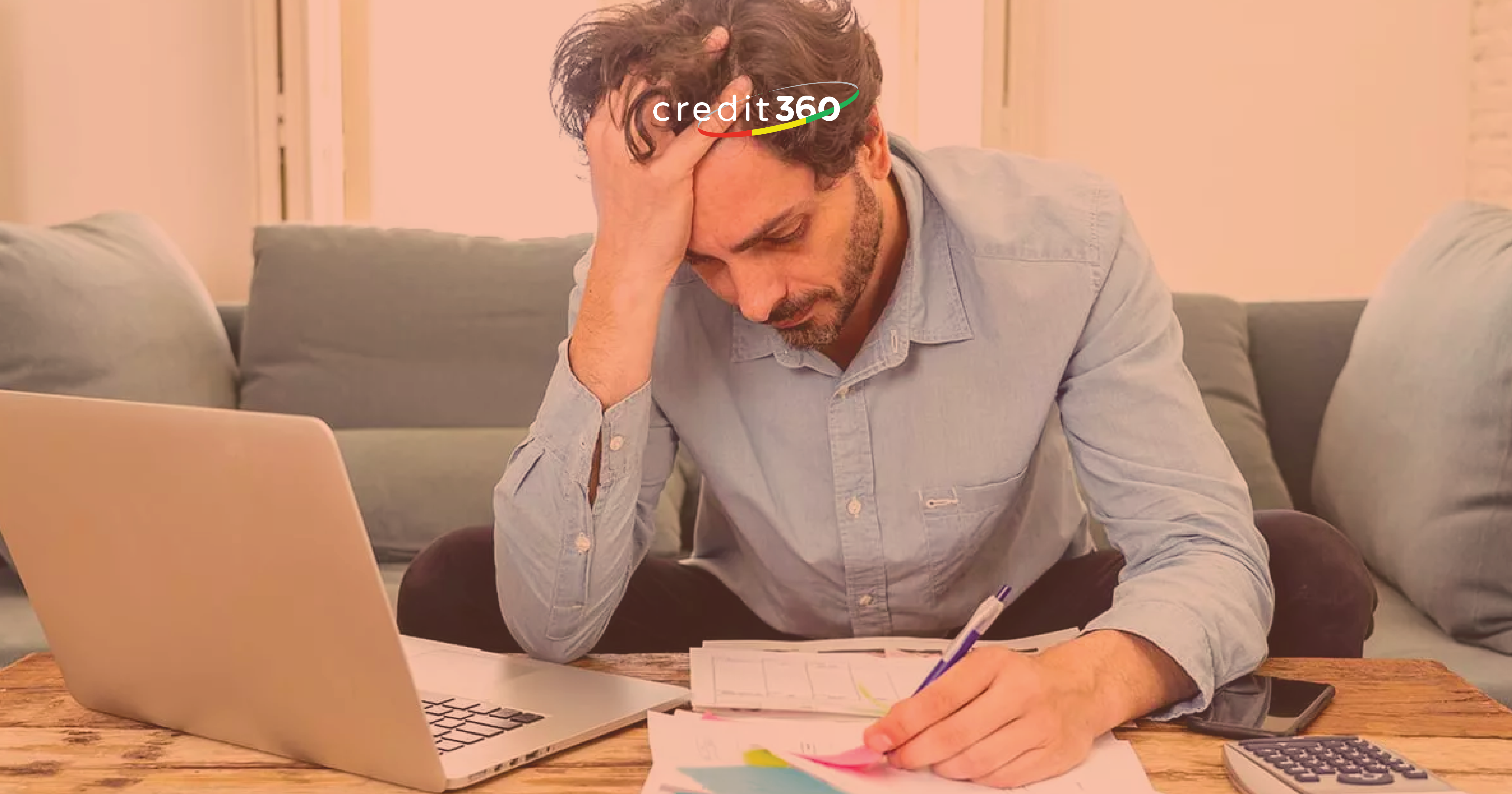
If you own credit cards, auto loans, and a mortgage, chances are, you own debt. Owning debt is not essentially a bad thing when you manage it properly and make payments on time. However, many clients who come to Credit360 come with debt problems because they didn’t know they had a problem until it was too late. At Credit360, we care about repairing credit. That’s why the first step to rebuilding credit is to know when debt is becoming a problem. In this blog, we’ve listed a few warning signs that indicate that debt is becoming a problem for you, along with a few tips on how to overcome your debt problem.
Contents
- Warning Signs That Your Debt is Becoming a Problem
- How To Recover From Debt
- Come to Credit360
Warning Signs That Your Debt is Becoming a Problem
Owning debt is not a problem, but it becomes a problem when you have more debt then you can manage. Here are warning signs that your debt is becoming a problem.
Can Only Afford the Minimum Payment
If you can only afford to pay your credit cards’ minimum payment, or you often miss payments, chances are you’re falling into troublesome debt. Only paying the minimum amount allows the remaining balance to be transferred onto the next month. The credit company will also apply additional interest fees. Thus, the minimum payment will continuously increase into the following months, digging yourself further into debt.
Monthly Payments Increase
As mentioned above, when you only pay the minimum payment, the credit statement will continue to increase in the following months because the credit company will apply interest fees. If you can only afford to pay the minimum amount, these monthly statement increases will further put you into debt because you won’t be paying the credit you own. Instead, you’ll be repaying credit fees, which won’t bring down the overall credit balance. If these monthly increases start to overwhelm you, debt is most likely becoming a problem.
Debt Collector Calls
If you’re receiving calls from collection agencies, chances are you’re in troublesome debt because credit lenders use third-party agencies when payments are missed continuously. Keep in mind that when credit lenders use third-party agencies, the lending company agrees to pay a percentage of the borrower’s debt in return for their services. So if you’re receiving debt collection calls, you must be behind on several payments for credit lenders to go to such an extent. Additionally, receiving collection calls indicates that you’re a delinquent account, which will show on your credit report, that will stay for seven years.
Paying Debt With Debt
If you’re using credit cards to pay for fixed expenses like rent/mortgage, utilities, and car payments, chances are you’re struggling to manage your money, indicating that you’re falling into debt. Your credit utilization will drastically increase when you frequently use credit cards to make payments for these expenses. Credit utilization measures how much credit you use in ratio to how much credit you own. When your credit utilization is above 30%-40%, it indicates that you’re relying on your credit, which tells lenders that you’re a risky borrower. To learn more about credit utilization, check out our blog, “5 Factors That Make Up a Credit Score.”
Too Many Cash Advances
Taking too many cash advances on your credit cards shows lenders that you do not have sufficient income to use your own money and that you heavily rely on credit. Taking cash advances will also result in a hefty fee applied to your next statement balance. Overall, cause you to fall deeper into debt. Our blog, “6 Common Credit Card Fees”, goes into detail about what cash advances are.
How to Recover From Debt
Figure Out Your Financial Situation
Understand your financial situation by writing a clear list of all your expenses. This list should consist of three categories: debts, fixed, and variable expenses. Under the debt category, write down any debt you owe, like credit cards, along with the total amount you owe. Under the fixed expense category, write down all the necessary payments you have to make, like rent/mortgage, insurance, and utilities. Next, write down all other expenses like food and entertainment under variable expenses. With these categories, you have a clear view of all your expenses and debt you own, giving you a better understanding of your financial situation.
Create a Budget
After writing out all your debts and expenses, you’re halfway to creating a budget! All you’re missing is a category indicating your monthly income. Under each category, add all the expenses together to come to a total sum. Keep in mind the goal is to bring debt down to zero while prioritizing your fixed costs. To bring your debt to zero, devise a payment plan with the owing credit institutions and meet the regular payments.
Adjust your expenses to complement your income if your total fixed and variable expenses are greater than your income. Suppose you can afford the total fixed expenses but not the variable costs. In that case, make adjustments to your variable expenses to ensure you prioritize your fixed payments.
Come to Credit360
Although we cannot pay your debts off for you, when you come to Credit360, we will help recover your credit score from debts! After you pay off your debt, the next goal should be to repair credit. We can quickly fix your credit by contacting credit lenders on your behalf when you come to us. Our team of credit repair consultants will actively work with you to improve your credit. All you have to do is choose Credit360 today to turn your life around.
Written By: Indojaa Sathiyaseelan

